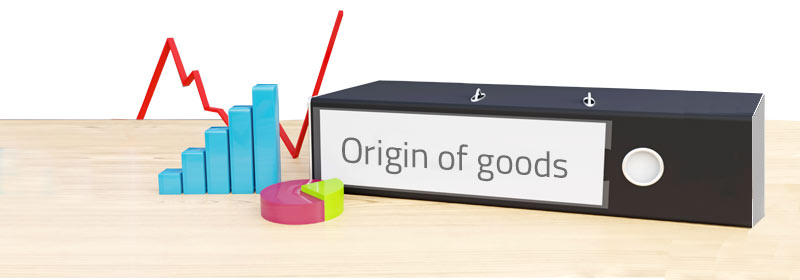Renegotiation of the rules of origin of the regional convention
What you need to know now
As early as 1 September 2021, the Regional Convention was reformed with the aim of modernising and amending the rules of origin.
As a result of the reform, the so-called "transitional rules" were created. These are alternative rules of origin that can be applied to the participating countries in order to check the preferential origin of the goods.
The number of participating countries is growing steadily, so it is worth keeping a close eye on developments. An actual list of participating countries can be found at the end of the article in a link provided by the European Commission.

What changes?
Not all countries of the regional agreement initially agreed to the new regulation, so the origin protocols of participating countries of the bilateral agreements were expanded to include Annex A (transitional arrangements).
The simplified rules of origin make it much easier to obtain preferential origin, since, for example, the permitted percentage of non-originating materials is often increased.
Making it easier to obtain preferential origin sounds promising and at first glance seems like a worthwhile change - but is it really that easy to apply the new transitional rules?
Can I apply the Transitional Rules?
In principle, there is currently an option to apply the new rules of origin for the participating countries and it is also technically feasible. However, there are some important aspects that need to be taken into account and which complicate the application.
If a preferential origin is declared using the transitional arrangements, the use of these must be explicitly mentioned when issuing the preferential proof.
Only EUR.1 is required as a movement certificate and special codes must also be indicated when importing goods that have obtained their origin using the transitional rules.
These two requirements sound feasible at first. The main problem with the transitional rules is the lack of permeability. This means that the combination of the Regional Convention Rules and the Transitional Rules is not permitted.
In practice, only materials that have a long-term supplier's declaration for goods with preferential origin, in which the transitional rules were also applied, may be considered as originating materials in a calculation that takes the transitional rules into account. It remains to be seen whether this requirement will be applied when issuing long-term supplier's declarations.
In conclusion, the existing simplifications, which certainly sound promising, are difficult to apply in practice due to the lack of permeability.
Should you have any questions regarding the effects on M.SecureTrade Außenhandelssolutions, please do not hesitate to contact our consulting team (produktsupport@mercoline.de) at any time.
Where can I find information about changes?
European Commission: Overview of participating countries
Matching Mercoline Solutions
M.SecureTrade Preference calculation
Practical solutions for processes around origin of goods and preferences in SAP.
M.SecureTrade Customer-side supplier declaration
Issue supplier declaration for customers.